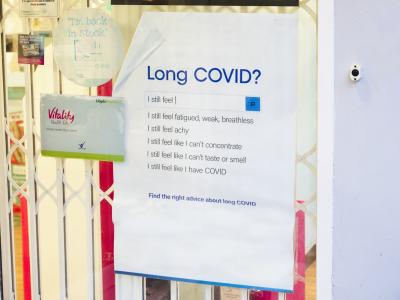Saudi Arabia's Ministry of Health (MOH) reported two new MERS cases today, both tied to a large hospital outbreak in Riyadh, while the World Health Organization (WHO) offered details on a recent Qatari case and a study highlighted poor outcomes in pregnant patients.
The Saudi MERS-CoV (Middle East respiratory syndrome) cases both involve healthcare workers and are linked to King Khalid University Hospital in Riyadh. An outbreak there began in May after a woman was admitted to a surgical ward before she was diagnosed as having MERS. To date, 28 cases have been connected to the hospital.
The first patient is a 27-year-old Saudi woman who is in stable condition and has yet to have symptoms. The other patient, a 58-year-old expatriate, was also asymptomatic and in stable condition. The MOH said both acquired MERS-CoV while working at the hospital.
In a study published last November in Emerging Infectious Diseases, researchers looking at another MERS hospital outbreak concluded that healthcare-associated transmission of MERS can last for 5 months.
The developments elevate Saudi Arabia's MERS-CoV total cases since 2012 to 1,406, including 597 deaths. The MOH also noted today that six Riyadh patients have recovered from their illness, none of whom are health workers. The news leaves 16 MERS patients still being treated.
WHO update on Qatar case
Elsewhere, the WHO offered new details of a previously reported MERS case in Qatar. On Jun 12, Qatar's Ministry of Public Health reported that a 23-year-old man was sick with MERS, the country's third case in 2016.
The WHO said the man, an expatriate, presented with symptoms on Jun 8 and tested positive for MERS-CoV on Jun 9. He was previously described as having no known risk factors, but the WHO said he had frequent contact with camels and drank raw camel milk. He also traveled to Saudi Arabia 2 weeks before exhibiting symptoms.
The patient remains in stable condition, and 26 household contacts have tested negative for MERS infection. All three MERS cases in Qatar this year have been linked to camels.
Severe complications in pregnancy
Meanwhile, a study published yesterday in Clinical Infectious Diseases described five cases of the disease in pregnant women, painting a grim picture of maternal and fetal outcomes.
While hospital-acquired infections and contact with camels have been hallmarks of MERS transmission, little is known about how the disease affects pregnant women and fetuses, the authors noted.
The study authors identified five pregnant MERS patients reported to the WHO from Saudi Arabia between November 2012 and February 2016, two of whom died. All five women were in their second or third trimester when they acquired MERS. One infection resulted in a stillbirth at 34 weeks gestation, and one infant died shortly after an emergency caesarian section at 24 weeks' gestation. One patient recovered from the disease and delivered a healthy baby at term.
Two of the women were healthcare workers and were exposed to MERS by known cases of the disease. Two women had no known exposure risk, and one woman was an occupational contact of a patient. None of the women had any underlying health conditions. Three of the patients were from Riyadh, and the remaining two were from Mecca and Unayzah.
All five women presented with symptoms, including fever, shortness of breath, and chest pain. Four of the five women were admitted to intensive care.
The authors suggest that, like SARS (severe acute respiratory syndrome) or influenza A, infection with MERS-CoV while pregnant causes severe symptoms and illness in women. In pregnancy, both pulmonary function and immune system activity are compromised.
"Efforts to limit exposure of pregnant women to MERS-CoV should be strengthened, and extended where possible," the authors said.
See also:
Jun 29 MOH report
November 2015 Emerg Infect Dis study
Jun 29 WHO report
Jun 28 Clin Infect Dis abstract






















